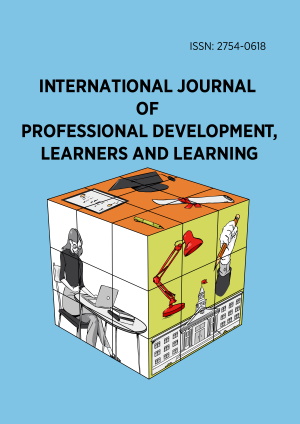Research Article
Learning Evaluation of Mathematics during the Pandemic Period COVID-19 in Jakarta
More Detail
1 Sekolah Tinggi Keguruan dan Ilmu Pendidikan Media Nusantara Citra, INDONESIA* Corresponding Author
International Journal of Pedagogical Development and Lifelong Learning, 1(2), July 2020, ep2008, https://doi.org/10.30935/ijpdll/8439
Submitted: 21 May 2020, Published: 30 July 2020
OPEN ACCESS 5147 Views 3613 Downloads
ABSTRACT
This research aims to evaluate the learning of mathematics at the college level conducted through distance learning programs during the COVID-19 pandemic in Jakarta. This research is a type of evaluation research using the Context, Input, Process, and Product (CIPP) model that is (1) context consists of program background and program planning (2) Inputs include of students readiness, teaching materials, facilities and infrastructures (3) process consisting of teaching methods and constraints in learning, and (4) the product consists of understanding and learning outcomes. Respondents in this study amounted to 155 students spread across five colleges in Jakarta. The instruments used for data collection are unstructured questionnaires and interviews. The validity of the device used is expert judgment. Furthermore, data is analyzed in a descriptive and interpretation to obtain an accurate picture of factual conditions in the field. The results showed that the mathematical learning conducted through distance learning at higher education in Jakarta needs improvement and improvement in quality from various aspects such as preparation, facilities and infrastructure, material materials, and learning methods used in the effort to achieve the objectives of the established differentiation. It based on the evaluation result on the context component; Score value 3.325 with outstanding category, input component; Score 2.86 by good category, process components; Score 2.80 by good grade, and product component; Score 2.26 with the less good group.
CITATION (APA)
Kamsurya, R. (2020). Learning Evaluation of Mathematics during the Pandemic Period COVID-19 in Jakarta. International Journal of Pedagogical Development and Lifelong Learning, 1(2), ep2008. https://doi.org/10.30935/ijpdll/8439
REFERENCES
- Afandi, M., Chamalah, E., & Wardani, O. P. (2013). Model Dan Metode Pembelajaran Di Sekolah. In Perpustakaan Nasional Katalog Dalam Terbitan (KDT) (Vol. 392, Issue 2). https://doi.org/10.1007/s00423-006-0143-4
- Alipichev, A. Y., Khalevina, S. N., Trubcheninova, A. A., & Fedulova, A. N. (2017). Solutions to foreign language training courses implemented using distance learning tools, 12(1), 59-68.
- Aziz, S., Mahmood, M., & Rehman, Z. (2018). Implementation of CIPP Model for Quality Evaluation at School Level: A Case Study. Journal of Education and Educational Development, 5(1), 189. https://doi.org/10.22555/joeed.v5i1.1553
- Basilaia, G., & Kvavadze, D. (2020). Transition to Online Education in Schools during a SARS-CoV-2 Coronavirus (COVID-19) Pandemic in Georgia. Pedagogical Research, 5(4). https://doi.org/10.29333/pr/7937
- Borisova, O. V., Vasbieva, D. G., Malykh, N. I., Vasnev, S. A., & Bírová, J. (2016). Problem of using innovative teaching methods for distance learning students. Mathematics Education, 11(5), 1175-1184.
- Darma, I. K. (2019). The Effectiveness of Teaching Program of CIPP Evaluation Model: Department of Mechanical Engineering, Politeknik Negeri Bali. International Research Journal of Engineering, 5(3), 1-13. https://doi.org/10.21744/irjeis.v5n3.619
- Junanto, S. (2019). Evaluation Model of Expertise Practice Programs for Early Childhood Educator Teachers. JPUD - Jurnal Pendidikan Usia Dini, 13(1), 128-142. https://doi.org/10.21009/jpud.131.10
- Leontyeva, I. A. (2018). Modern distance learning technologies in higher education: Introduction problems. Eurasia Journal of Mathematics, Science and Technology Education, 14(10), 1-8. https://doi.org/10.29333/ejmste/92284
- Lestari, S., Rosana, D., & Supahar. (2017). The Development of CIPP Evaluation Model Instruments on the Application of Science Project Learning Assessment. 4th ICRIEMS Proceedings, 57-64. http://seminar.uny.ac.id/icriems/sites/seminar.uny.ac.id.icriems/files/prosiding2017/SE10_SRI.pdf
- Mulenga, E. M., & Marbán, J. M. (2020). Is-COVID-19-the-Gateway-for-Digital-Learning-in-Mathematics-Education. Contemporary Educational Technology, 12(2), ep269. https://doi.org/10.30935/cedtech/7949
- Naciri, A., Baba, M. A., Achbani, A., & Kharbach, A. (2020). Mobile-Learning-in-Higher-Education-Unavoidable-Alternative-During-COVID-19. Aquademia, 4(1), ep20016. https://doi.org/10.29333/aquademia/8227
- Ramdani, Y. (2006). Kajian Pemahaman Matematika Melalui Etika Pemodelan Matematika. Jurnal Sosial Dan Pembangunan, 22(1), 2. https://ejournal.unisba.ac.id/index.php/mimbar/article/view/198
- Sintema, E. J. (2020). Effect of COVID-19 on the Performance of Grade 12 Students: Implications for STEM Education. 16(7), 1-6.
- Stufflebeam, D. L. (2003). The CIPP Model for Evaluation. International Handbook of Educational Evaluation, 31-62. https://doi.org/10.1007/978-94-010-0309-4_4
- Sugiono. (2014). Metode Penelitian Pendidikan; Pendekatan Kuantitatif, Kualitatif, dan R & D (20th ed.). Alfabeta.
- Ujiyono, I. (2018). Evaluasi Program Pendampingan Implementasi Kurikulum 2013 Di Kabupaten Wonosobo. Media Manajemen Pendidikan, 1(1), 97. https://doi.org/10.30738/mmp.v1i1.2883
- Warju, W. (2016). Educational Program Evaluation using CIPP Model. Innovation of Vocational Technology Education, 12(1), 36-42. https://doi.org/10.17509/invotec.v12i1.4502

 The articles published in this journal are licensed under the CC-BY Creative Commons Attribution International License.
The articles published in this journal are licensed under the CC-BY Creative Commons Attribution International License.